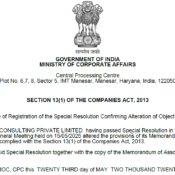Harassed? Contact for Suit.
Have you been harassed by Family or friends? Contact for Suit.
harassment? Contact to Suit. 2
If you have been caused harassment by family members and believe that their false statements have defamed you, you may be able to file a defamation case in Bangalore. To succeed in a defamation case, you must be able to prove the following elements:
Table of Contents
ToggleWhat statements are considered Defamatory?
For a statement to be considered defamatory, it must meet certain criteria. Specifically, the statement must:
Be false: The statement must be untrue.
Be published: The statement must be communicated to at least one other person.
Cause harm: The statement must cause harm to your reputation or emotional well-being.
Below are the statements that may be considered defamatory:
False accusations of criminal activity or unethical behaviour
False statements about someone’s professional competence or qualifications
False statements about someone’s personal or Family life
False statements that expose someone to public ridicule or contempt
It is important to note that statements of opinion, even if they are harsh or critical, are generally not considered defamatory as long as they are not presented as statements of fact.
The statement was false: You must be able to show that the statement made about you was false.
The statement was published: The statement must have been communicated to at least one other person.
The statement caused you harm:You must be able to show that the statement caused you harm, such as damage to your reputation or emotional distress.
To make a strong defamation case, it is important to gather as much evidence as possible to support your claim. This may include documentation of the false statements, witness statements, and any other evidence that demonstrates the harassment caused by the statements.
Evidence required for file defamation for harassment
In order to succeed in a defamation case against a family member, you will need to produce evidence to support your claim. The specific evidence needed will depend on the specific facts of your case, but generally you will need to prove the following elements:
The statement was false: You must be able to show that the statement made about you was false. This may be done through witness testimony, documentation, or other evidence.
The statement was published:
The statement must have been communicated to at least one other person. You will need to provide evidence of this, such as witness statements or documentation of the statement being shared on social media or in some other public forum.
The statement caused you harassment:
You must be able to show that the statement caused you harassment , such as damage to your reputation or emotional distress. This may be demonstrated through witness testimony, medical records, or other evidence of the harm caused by the statement.
Evidence that may be helpful in a defamation case includes:
Legal Process in Defamation case:
Gather evidence:
It is important to gather as much evidence as possible to support your claim, including documentation of the false statements, witness statements, and any other evidence that demonstrates the harassment caused by the statements.
Consult our advocate:
It is advisable to seek the assistance of an experienced advocate who can help you understand your legal options and guide you through the process of filing a defamation case.
File a complaint:
The advocate can assist you in drafting and filing a complaint with the appropriate court. The complaint should outline the details of the case and the relief sought.
Service of summons:
The court will issue a summons directing the defendant (the relative who made the false statements) to appear in court to answer the complaint. The summons must be served on the defendant within 60 days of the filing of the complaint.
Appearance in court:
The defendant must appear in court on the date specified in the summons. If they fail to do so, the court may proceed with the case in their absence.
Trial:
The trial will take place in court, and both parties will have the opportunity to present their evidence and arguments. The court will consider the evidence and arguments presented and make a decision.
The length of time it takes for a defamation case to be settled will depend on a number of factors, including the complexity of the case, the court’s workload, and the availability of the parties and witnesses. It is not uncommon for defamation cases to take several months or even years to be resolved.
Outcome of the Defamation Case
If the court finds in favor of the plaintiff, it may award damages to compensate the plaintiff for the harm caused by the defamatory statement. The amount of damages awarded will depend on the severity of the defamation and the impact it had on the plaintiff’s reputation and emotional well-being.
If the court finds in favor of the defendant (the person accused of defamation), the case will be dismissed and the plaintiff will not be entitled to damages
Out of court settlement
Consider settlement: If the defendant willing to negotiate, you may be able to reach an out-of-court settlement to resolve the case. This may involve retracting the statement, issuing a public apology, and paying damages to compensate for any harm caused by the statement
Format of Defamatory notice
Here is a sample defamation notice format that you could use in Bangalore in relation to false statements made by a family member that have damaged your reputation:
Date: ______________
To: [Name of family member]
Address: ________________________
Subject: Defamation Notice
Dear [Name of family member],
I am writing to inform you that you have made defamatory statements about me that have caused me harm. Specifically, you have made false statements about my character, reputation, or personal or professional life that have exposed me to ridicule or contempt, or that have damaged my reputation.
I demand that you immediately retract these statements and issue a public apology. I also demand that you pay damages to compensate me for the harm caused by your statements.
If you do not comply with these demands within 7 days of the date of this notice, I reserve the right to take legal action against you for defamation.
Sincerely,
[Your name]
It is important to note that this is just a sample format and that the specific demands and terms of a defamation notice may vary depending on the circumstances of the case. It is advisable to seek the assistance of an experienced advocate to help you draft a defamation notice that is tailored to your specific situation.
Sample advocate notice:
Date: ______________
To: [Name of family member]
Address: ________________________
Subject: Advocate Notice
Dear [Name of family member],
I am writing on behalf of my client, [Your name], to inform you that you have made defamatory statements about my client that have caused them harm. Specifically, you have made false statements about my client’s character, reputation, or personal or professional life that have exposed them to ridicule or contempt, or that have damaged their reputation.
These statements were made on 2025 and were communicated to [number] other people. As a result of these statements, my client has suffered [describe harassment , such as damage to reputation, emotional distress, loss of business or employment opportunities, etc.].
My client demands that you immediately retract these statements and issue a public apology. They also demand that you pay damages in the amount of [amount] to compensate them for the harm caused by your statements.
If you do not comply with these demands within 7 days of the date of this notice, my client reserves the right to take legal action against you for defamation.
Sincerely,
[Your name]
[Name of law firm]
[Address of law firm]
If you have been the victim of defamation and are considering taking legal action, it is advisable to seek the assistance of an experienced Legal team at Bluechip Ca Legal at Bangalore.
Important Links –
Like Us On Facebook

Our Client's Review
EXCELLENTTrustindex verifies that the original source of the review is Google. Best place to file ur GST n IT returns .. They respond quickly, communicate well and get ur work done as per ur needs in a very short time ..Posted onTrustindex verifies that the original source of the review is Google. Best place for Income tax filingPosted onTrustindex verifies that the original source of the review is Google. Of all the CA, CS teams I have interacted with, they are the most prompt and organized. I have taken their services for almost 3 years now for various things like income tax queries, income tax filing, networth certificates, and compliance certificates. They always display a clear understanding of the law and are also able to explain it to you in layman terms. Overall a very resourceful and courteous team. Thank you for the support!Posted onTrustindex verifies that the original source of the review is Google. Best company secretary I bangalore ever seen such quick quality servicePosted onTrustindex verifies that the original source of the review is Google. Prakasha & Co has been a lifesaver for me when it comes to my tax dispute and filings with IT office. They are always very responsive and helpful whenever I have any questions or issues, I recently had an issue with my sister business GST filings, and they were able to quickly identify the issue and help me resolve it. They really go above and beyond to make sure their clients are taken care of.Posted onTrustindex verifies that the original source of the review is Google. ''The team at Prakasha& Co made sure my company was compliant with all the legal requirements. Their attention to detail and timely response was truly remarkable."Posted onTrustindex verifies that the original source of the review is Google. "I was impressed with the level of customer service provided by Prakasha& Co. They were always available to answer my questions and provide guidance throughout the company registration process."
Important Links
- Top 10 GST Registration Consultants in Bangalore
- Top 10 Best Income Tax Lawyers in Bangalore
- Top 10 Trademark Registration Consultants in Bangalore
- GST Registration in Bangalore
- Private Limited Company Registration in Bangalore
- Partnership Firm Registration in Bangalore
- Proprietorship Registration in Bangalore
- Trademark Registration in Bangalore
- Audit Frim in Bangalore
- CA Firm in Bangalore
- Accounting Services in Bangalore
- GST Lawyers in Bangalore
- Payroll Services Provider in Bangalore
- Payroll Consultant in Bangalore
- Income Tax Lawyer in Bangalore
All Categories
- Audit
- Blogs
- Bookkeeping Services
- Company Registration
- Company secretary Legal & Chartered Accountant
- Digital Signature Certificate (DSC) Services
- FSSAI Registration and Consultation
- GST
- Income tax
- Partnership Firm Registration
- Payroll Services
- Risk Management Services
- Startup Registration Process
- Trademark Registration
- Uncategorized






